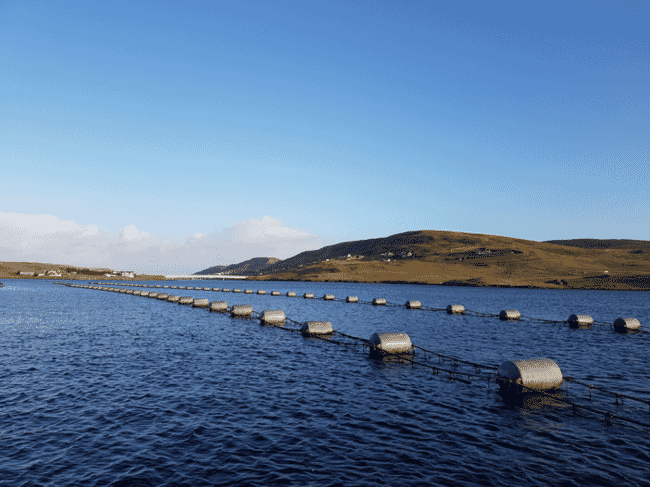
© Aquasens
During 2019, NAFC Marine Centre UHI collaborated with Scottish shellfish producers to develop an extensive online survey to collect views from Scottish shellfish farmers. The work was funded through the University of the Highlands and Island's Aquaculture Industry Engagement Fund and the results have contributed to the development of "Shell-volution", a new strategy for the Scottish shellfish farming industry.
During the consultation, the shellfish producers confirmed their desire to become a more knowledge-based industry. They clearly expressed their intention to become more resilient, to grasp market opportunities and to achieve sustainable growth as has been previously described in A View Towards 2030 – Scottish Aquaculture, which set a target of tripling shellfish production to 21,000 tonnes per annum by 2030.
Three themes emerged during the consultation as priority areas for future work:
Spat production
Improving spat production and better understanding factors that affect natural spat settlement. Mussel farmers rely on spat the settles naturally on their farms from the wild but this varies between locations and from year to year.
The shellfish farm-environment
Gaining a better understanding of the interactions between mussel farms and the environment including factors that affect growth and production capacities and the impacts of plankton and water quality.
Best practice
Addressing mussel farmers’ desire to share and learn from existing best practices and data and to create new tools to help standardise data capture and analysis.
Report and analysis
The full report has now been published and will be used by Scottish shellfish industry, the public sector and academics to identify ways to work within these themes and to help the sector achieve their targets.
Michael Tait, owner of Shetland Mussels Ltd, who contributed to the survey, said: “This report is timely and is part of a wider initiative Shell-volution. We hope Shell-volution will help evolve our shellfish sector into its next generation by asking key questions and coming up with projects to answer them clearly, each of which will unlock bottlenecks in our expansion plans.”
Dr Nick Lake, chief executive of the Association of Scottish Shellfish Growers, also welcomed the survey.
“It is a very useful snapshot of current practices and aspirations. We particularly welcome the themes that have been identified and research prioritisation exercise. Shell-volution is a strategy that fits well with ASSG aims, which are to drive forward Scottish production, improve shellfish quality and build a more profitable, sustainable and more robust shellfish industry throughout Scotland. We look forward to contributing further to the Shell-volution strategy and to see this important future work get underway,” he said.


